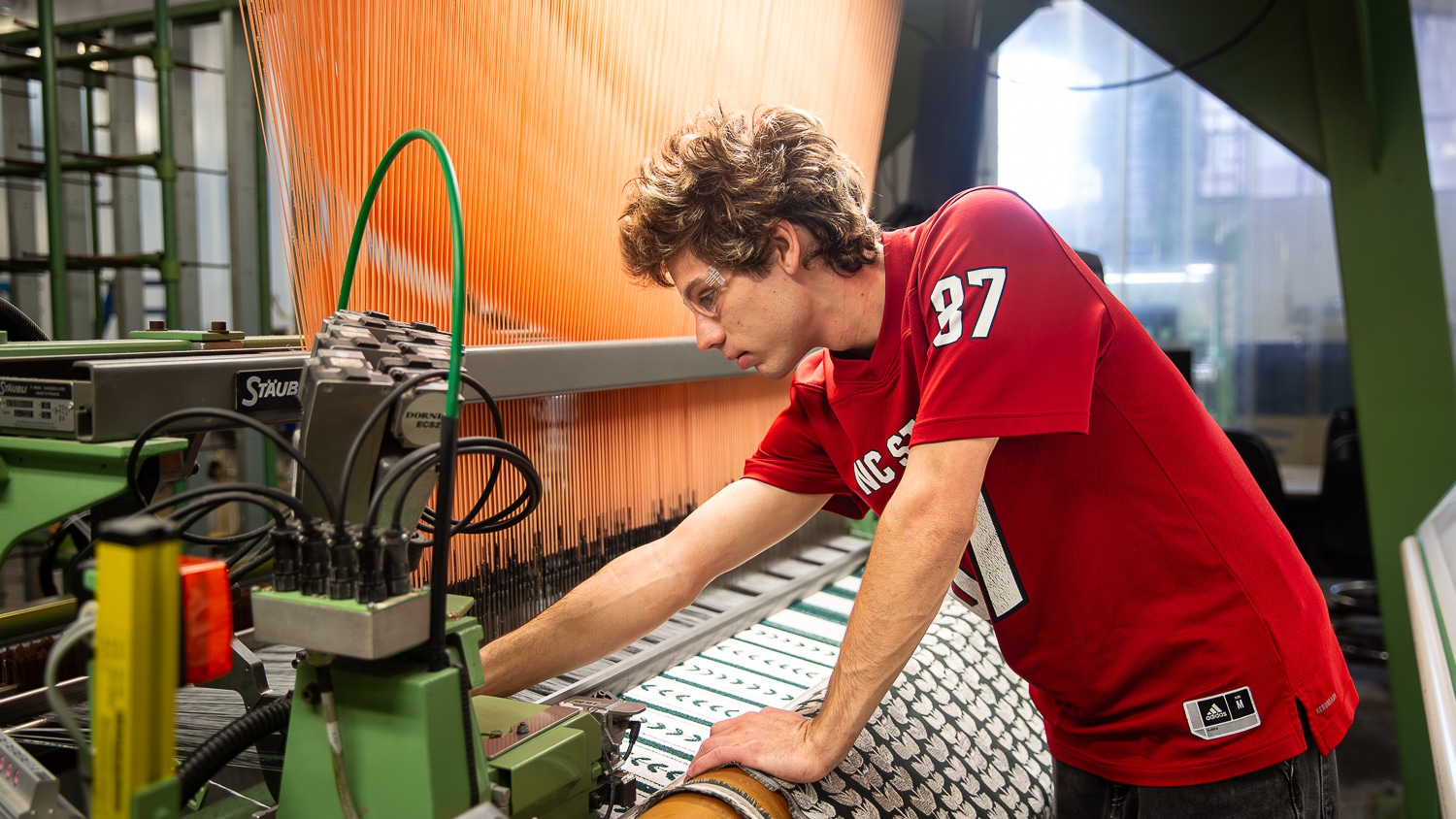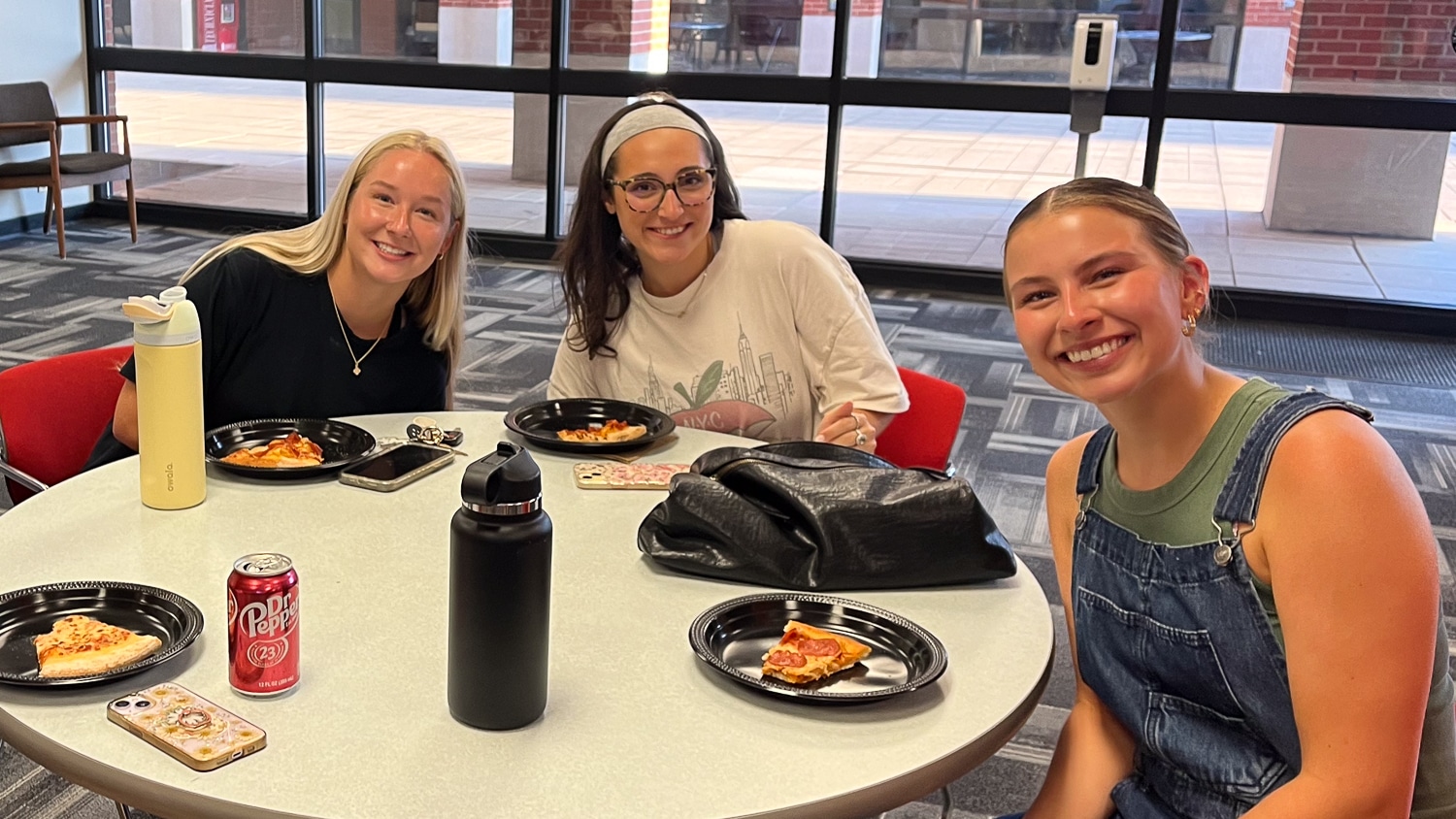Dakota Batch: Shifting to a Global Perspective

By Debbie Willmschen
When Dakota Batch was 12 years old, her mother “forced” her to take a quilting class. The class was memorable because it included primarily skilled women 60 or older — and one young student who did not even know how to use a sewing machine. However, Batch did, in fact, learn to sew — with a passion that turned into a serious hobby.
At the time, she was unaware how these women and their craft would change the trajectory of her career. But as an undergraduate at the University of Texas at Austin, memories of the joy of working with fabrics led Batch to choose textile and apparel design as her primary field of study. After graduating with a Bachelor of Science, Batch explored careers unrelated to the textile industry. Yet, she still felt the call of her textiles passion.
“I knew that I wanted to somehow create a lasting and global change in the culture of the textile industry, and I was ready to grow and learn in an environment that aligned better with those goals,” Batch said.
She decided that NC State Wilson College of Textiles was a place where she could gain the knowledge she needed to compete in the global marketplace. Batch was attracted to the Wilson College for its close proximity to family living in the area and its industry connections and manufacturing capabilities that she wanted to experience firsthand.
“I wanted to touch it, mess with it and see how the kinks are, which was important in this next phase of my education,” she said. In the Wilson College Textile Technology Management doctoral program (TTM), Batch found the freedom, support and resources to develop a program of research that works for her.
Early on in navigating the mentor process, Batch identified Kate Annett-Hitchcock, associate professor in the department of Textile Apparel, Technology and Management, as her mentor and faculty advisor. Batch learned only how this process is a collaborative effort, where her opinion is valued. She also realized that Annett-Hitchcock shares available opportunities that provide access to experiences that TTM students would not have otherwise.
“I appreciate that we share every opportunity and resource with each other,” said Batch, who has gained experience through administrative work on projects as well as teaching assistant responsibilities. These opportunities have also helped to provide financial support to offset the cost of her tuition. “It makes the process easier, and I’ve grown to become family with the people I’m going through the program with.”
In fact, Batch’s research grew from her project management work with Annett-Hitchcock — on a campus-wide initiative, Advancement of Women Entrepreneurs, better known as AWE. Through this involvement, she realized that women in the textile and apparel industry often do not get the support they need, even if they have a viable product and a fully-formed business plan.
“I found female students who wanted to take the next leap but needed support,” says Batch. “And I discovered a skill, which I always had but never exercised, in connecting people to the opportunities and resources that they need.”
This newly-sparked interest spurred her into continuing to research how women seek support, what kind they are looking for, what types are not given to them and ways to better connect them with support they might need. Her overarching research focuses on the entrepreneurial ecosystem within the textile and apparel industry of North Carolina: how the industry (from fiber to retail) connects, what information flows between these connections and how visualizing this network can help.
More specifically, she is examining how small- and medium-sized enterprises owned by women in rural areas engage with available support systems such as financial, business, operational and more — and how that support is perceived. Mapping support connections for female entrepreneurs can help policy makers better understand if the help is useful, where the help is coming from (government resources, community resources, family or other organizations) and whether any of these businesswomen are being left out of the conversation entirely.
Batch hopes to complete her Doctor of Philosophy in TTM by spring 2022. Coming into the program wanting to teach, she now has the entrepreneurial bug. “I want to continue researching and interacting with students, but I also want to determine what excites me and use that to help my community,” she affirmed.
Batch credits this shift to a more global perspective to her mentor’s passion for making the fashion and textile industry more inclusive, open and accepting of different backgrounds, body shapes and abilities.
“The fashion complex — the industry, the consumer and the educational paradigm — are at a moment of critical change,” said Annett-Hitchcock. “There will be no ‘business as usual’ in any of these arenas. Dakota and her cohort of talented graduate students are motivated to embrace that change and capitalize on what it can offer humanity and the planet.”
Going forward, Batch is excited to teach students how to become change agents. “Everyone wears clothing … so why not try and make the entire supply chain more inclusive for all those involved,” says Batch. “I want my students to look past their own communities to see the broader impact that fashion and textiles have.”
- Categories:


